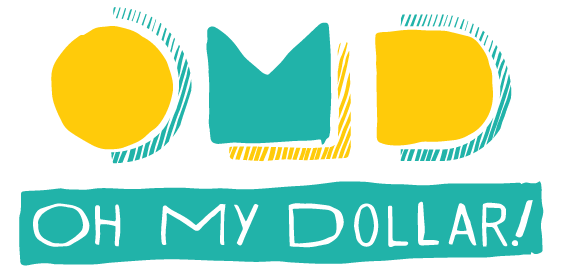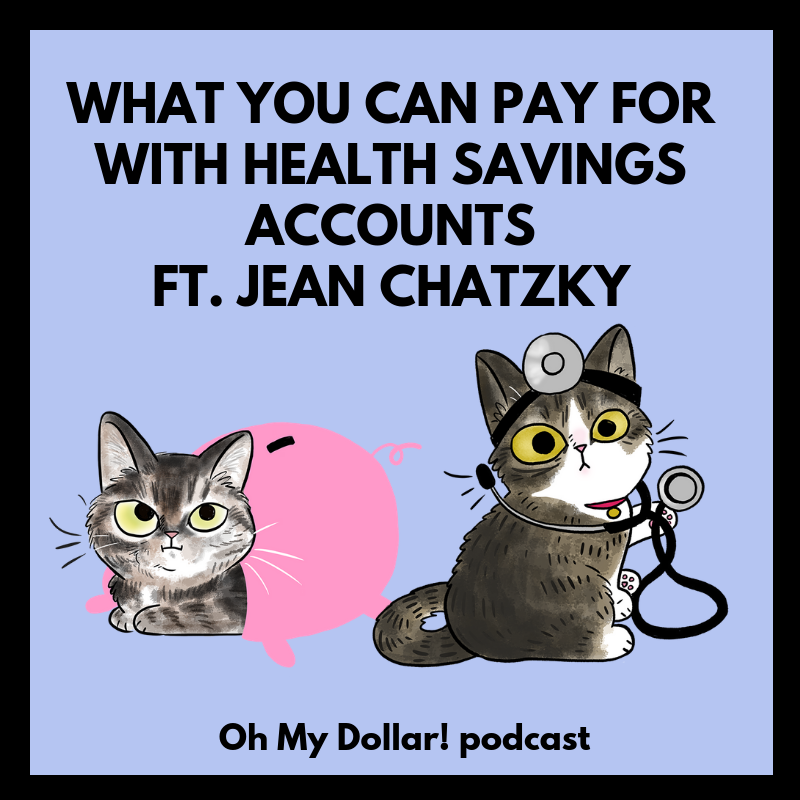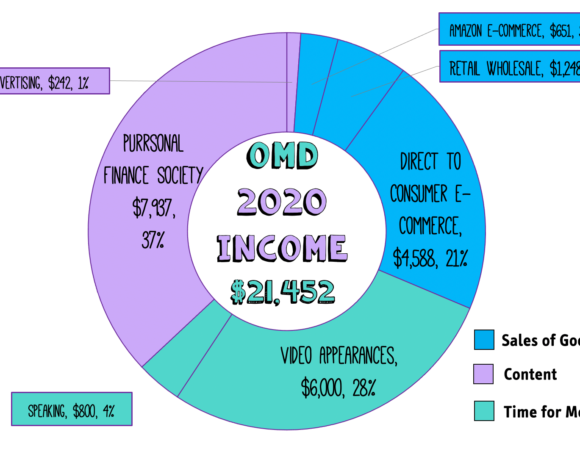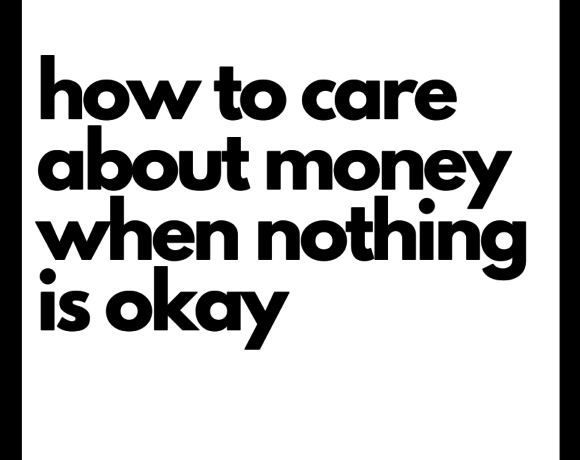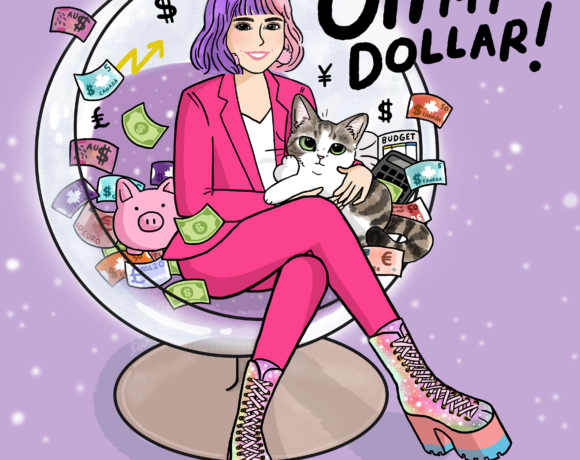About Jean Chatzky and HSA Day

Jean Chatzky, the financial editor of NBC’s TODAY show, is an award-winning personal finance journalist, AARP’s personal finance ambassador and host of the podcast HerMoney with Jean Chatzky.
Jean is also a best-selling author. Her newest book, AgeProof: Living Longer Without Running Out of Money or Breaking a Hip, which she wrote with Dr. Michael Roizen, is a New York Times and Wall Street Journal bestseller.
In an effort to continue her conversation on HSAs, she’s actually sitting on a panel for National HSA Awareness Day (HSA Day for short) on Oct. 15. HSA day aims to bring the healthcare benefits industry and the general public together to increase awareness and education surrounding health savings accounts.
We talk about:
- What you can buy with an HSA (a Health Savings Account)
- How to know if you’re eligible to get an HSA through work
- The difference between an HSA and an FSA (Flexible Spending Account)
- Why the money in an HSA doesn’t expire
- What HSA Day is, and why you should tune in!
- What Jean’s greatest money mistake and money victory were
We’ll continue this discussion on the Oh My Dollar forums, a friendly, nonjudgemental online community about money – come join us, we’re nice! This month we’re doing Budgetober, and it’s not too late to join and get your budget on track this month! While Budgetober is halloween-themed, we’re not spooky or scary, come join!
Question to discuss:
- Do you have an HSA? Did you get it through work or on your own?
- Does work contribute to your HSA?
- Do you use it to purchase things or just as an extra tax-advantaged savings account?
We love hearing from you!
Email us any financial worries, successes, or health care questions at questions@ohmydollar.com or tweet us at @anomalily or @ohmydollar.
A Cat’s Guide To Money – Oh My Dollar! cat-filled purrsonal finance book, is shipping now. You can order a copy now if you missed the kickstarter! (Plus new stickers and a planner!)
This show is made paw-sible by listeners like you
We absolutely love our Purrsonal Finance Society Members, the folks that generously support Oh My Dollar with $1 or more a month on Patreon – and have made is so we have free, full transcripts for every show.
This episode was underwritten by patron Tamsen G Association, Chris Giddings, and Warrior Queen. To learn more about being part of the Purrsonal Finance Society and get cool perks like cat stickers, you can visit ohmydollar.com/support
Other Episodes You Might Find Interesting
What you can pay for with Health Savings Accounts, ft Jean Chatzky Transcript
OMD 9-25-19 Jean Chatzky.mp3 was automatically transcribed by Sonix with the latest audio-to-text algorithms. This transcript may contain errors. Sonix is the best way to convert your audio to text in 2019.
Lillian Karabaic:
Listeners like you make the show possible and keep our lights on. You can join up with other Oh My Dollar! community members to support episode transcripts and more by making a pledge of one dollar or more per month and get cool perks like cat stickers and a special badge on our forums!
Lillian Karabaic:
This episode was underwritten by the Tamsen G Association, Warrior Queen, and Chris Giddings. To learn more, you can visit ohmydollar.com/support.
Lillian Karabaic:
Welcome to Oh My Dollar!, A personal finance show with a dash of glitter. Dealing with money can be scary and stressful.
Lillian Karabaic:
Here we get practical, friendly advice about money that helps you tackle the financial overwhelm. I’m your host, Lillian Karabaic.
Lillian Karabaic:
Today, we’re kicking off health care month on the Oh My Dollar show with special guest Jean Chatzky.
Lillian Karabaic:
Jean Chatzky is the financial editor of NBC’s Today Show, is an award-winning personal finance journalist, AARP’s personal finance ambassador and host of the podcast, Her Money with Jean Chatzky on iTunes. Jean is also a best selling author. Her newest book, Age Proof Living Without Running Out of Money or Breaking a Hip, which she wrote with Dr. Michael Rosen, is a New York Times best seller and Wall Street Journal best seller. Let’s get Jean on the line.
Lillian Karabaic:
Jean is here to join us to talk about HSA Day.
Lillian Karabaic:
And as part of an effort to continue the conversation on HSA is she’s actually sitting on a panel for the National HSA Awareness Day, which is HSA Day for short on October 15th.
Lillian Karabaic:
HSA Day aims to bring together health care benefits, industry and the general public to increase awareness and education surrounding health savings accounts, which I know can be completely confusing for a lot of people.
Lillian Karabaic:
I have mostly not had access to something like an HSA in my career and I am extremely jealous of people with access to them. So, I’m really excited to have Jean here to fill us in on a lot of these things. So yeah, I’m so excited to talk about HSAs with you, Jean.
Jean Chatzky:
Thanks. Thank you so much for having me. I’m excited about this panel, in particular, because I’m going to be sitting down and talking to real people about how they absolutely use these accounts in their real lives. So sometimes this discussion gets very high level. But when we’re talking about health savings accounts, talking to people who actually have them, use them, like them, understand the nuances, I think is a really helpful window for those of us who are considering them.
Lillian Karabaic:
Yeah, I think it’s one of those things where we get – especially like we saw them pop up a lot in the last presidential election, when people were talking at a very high level about health care policy and health care reform.
Lillian Karabaic:
And HSAs are kind of the darling of a lot of conservative folks and some liberal folks, but it’s hard to actually take that down into how does this really apply to my real life?
Jean Chatzky:
Yeah.
Lillian Karabaic:
So can you explain what an HSA is first off and also how it is different from an FSA? Because I know a lot of people get confused by those two.
Jean Chatzky:
Well, because they sound almost exactly alike. So who wouldn’t, right? HSA is a health savings account.
Jean Chatzky:
FSA is a flexible spending account – and they’re similar in that you contribute pre-tax dollars to both of those accounts and then use the money in them to pay for medical expenses. But, the biggest difference is that the money in a health savings account is yours to use and yours to keep.
Jean Chatzky:
So if you change jobs, that money just stays with you. If you decide to switch to a different kind of a health plan, that money is still yours to use in the future for medical expenses. If you don’t move your money up in an FSA, a flexible spending account, by typically the end of the year, although some employers have a grace period – it reverts back to the employer.
Jean Chatzky:
So it’s use it or lose it money, while the HSA money is yours forever.
Lillian Karabaic:
And your FSA money would, presumably if you got terminated part of the way through the year, you wouldn’t have access to that? But HSA money, any money you’ve put in, you get a keep even if you leave your position.
Jean Chatzky:
Yeah, and I am not sure about that end of the year. The thing I think people will want to check on that if they’re thinking about making an FSA contribution. And they think that they might lose their job before the end of the year, but HSA money is yours no matter what job you’re doing.
Lillian Karabaic:
Right. And FSA is have a lot of variance right where there is there’s some kind of extension. Some of them have grace periods where they’ll go beyond, you know, December 31st, as sort of the deadline, but it’s all over the map. And HSA is tend to be more kind of universally regulated. And as far as the fact that you get to keep that money in there,.
Jean Chatzky:
Yeah, they’re both set up by provisions in the tax code. But you’re right, the company by company restrictions on the FSA tend to be a lot more limiting and a lot less scary for people who are afraid that, “hey, I’m going to put a chunk of my paycheck in this account and if I don’t lose it, it just vanishes.”.
Lillian Karabaic:
Right.
Jean Chatzky:
Whereas HSAs, health savings accounts, often have money that your employer put into incentivize you to contribute. And, the tax benefits are substantially better. When we’re talking about, Health savings accounts, We’re talking about an account that is triple tax free. And what that means is that the money that you put into the account goes in. You get a tax deduction for putting it there. It grows tax free. And when you pull it out, as long as you use it to pay for medical expenses, you don’t have to pay any more taxes on it at all.
Jean Chatzky:
And so for a lot of people, these accounts are making them feel like they’ve got this security blanket. This this security blanket that they can use to pay for the sort of health care expenses that often come along to surprise you.
Lillian Karabaic:
Yeah. And they you know, there’s no I don’t think there’s any other account that I can think of that has that triple tax benefit overall, because even some of our, you know, our other tax advantaged accounts, it’s either taxed going in or coming out.
Jean Chatzky:
Exactly. Exactly. I mean, Roth IRA. I suppose the closest, but you do pay the taxes going in.
Lillian Karabaic:
Yeah, exactly. So how do you know? Can you like what can you buy with an HSA? Can you actually pay your health insurance? Could you put money in it and then pay your health insurance premiums each month with it?
Jean Chatzky:
Generally, you can’t pay your health insurance premiums. Although, you can pay long term care insurance premiums. You can pay Medicare premiums, which is a huge, huge deal. You can pay health insurance premiums if you’ve got COBRA or you’re unemployed at the time and you’re getting unemployment.
Jean Chatzky:
Otherwise, the list of medical expenses that you can pay for is pages and pages and pages long. The IRS has a manual on this and it is just it is just huge. I mean, it’s everything from day-to-day stuff that you might get in a drugstore to bigger items like mammograms and other taxes that you might need. You can pay for your prescriptions. You can pay for your doctor’s visit. I mean, I would take insurance premiums up the top and figure most other things, as long as they are real, medical expenses will be covered.
Lillian Karabaic:
I mean, OK, so this sounds very magical, but not everybody can get an HSA. You have to have a certain kind of of health insurance plan to get it. How do you know if your health care plan is HSA qualified?
Jean Chatzky:
You’re going to want to talk to your employer. And you know, this is the time of year, right? It’s fabulous, by the way, that you guys devote an entire month to health care. It’s something- It’s an idea that I think we’re gonna have to steal over at the Her money podcast.
Jean Chatzky:
But the fact that your health, your employer may have a menu of plans that you are able to choose from. And this is the time of year where they’re handing out information about those plans. Talk to them about whether you have a plan that does give you access to a health savings account.
Jean Chatzky:
And if you’re not getting a plan through an employer and you’re going, for example, to one of the exchanges or to healthcare.gov, then you will be able to see on the Web site if the plans are HSA eligible as well.
Lillian Karabaic:
And I know on health care dot gov. Luckily it – which it’s not every state’s exchange, but health care dot gov is the one that covers most most states exchanges. If you are searching the name of the insurance plan, it will have to have HSA in it.
Lillian Karabaic:
Because there’s a lot of plans- Generally you need what’s called a high deductible health plan, but like you’re saying, it is challenging sometimes to figure it out and it’s best to have a conversation with the person in charge of benefits, if you have someone at your job who does that, because there will be things that look like high deductible health plans. But if they you know, they’re not technically HDHPs, even though they have what appears to be a sky high deductible because they cover a couple medications before you hit your deductible, in which case they don’t count as a HDHP. So it’s important to make sure they have that HSA in the name on the exchange.
Jean Chatzky:
Right. I think that the takeaway is just because they have a high deductible, doesn’t mean they’re an HSA eligible.
Lillian Karabaic:
Isn’t that great? Just to make it clear as mud, really.
Jean Chatzky:
Exactly.
Lillian Karabaic:
So, if you are in the case where you’re getting it through the exchange, if you’re self-employed or just your employer doesn’t have a plan and you’ve decided to go for an HSA eligible plan, how do you open an HSA? Maybe you have an HDHP through your work, but they don’t offer an HSA. Where do you go to get one?
Jean Chatzky:
So there are firms all over the country and if you Google “open an HSA”, you’re going to find almost as many places that will say you can open it here, as if you were googling “open an IRA”.
Jean Chatzky:
If you’re going through your employer, you may want to see where they are, who they are working with, because one of the things that is nice about doing this through your employer is that you may be eligible for payroll deduction. It can just make contributing to an HSA automatic and easier like you do with a 401K.
Jean Chatzky:
But when you’re looking at different health savings account providers, I would look for a couple of things. You want to look and make sure they have a debit card.
Jean Chatzky:
When people one of the questions I get asked a lot. Well, how do you pay for stuff using the money that you’ve got in your HSA? And sometimes you have to go through the process of paying and submitting for reimbursement. But in many, many cases, these accounts have debit cards. And if you can use your debit card to pay and that makes it easy as it’s paying with any other debit card, it’s just it’s just very, very seamless.
Jean Chatzky:
It also provides you a paper trail,.
Lillian Karabaic:
Without having to do the work
Jean Chatzky:
Yes. It also provides you a paper trail without having to do a huge amount of work of keeping receipts. So that’s that’s fantastic. The other thing I would look for. There are a couple different ways to use money in an HSA, in a health savings account.
Jean Chatzky:
If you use it in real time and if you’re using it for day to day medical expenses, it’s going to save you about 25 percent off any medical expense just because of the tax advantages. But you can also- you don’t need to use the money in real time. You can keep it in the account. You can invest it.
Jean Chatzky:
And it can grow into essentially a supplemental retirement account. And then if you’re really smart, you save your receipts for all the medical care that you’ve had over the years. You can pay yourself back out of the health savings account without having to pay taxes. So that’s just like let the money grow. Pay yourself back. It’s a really nice, easy, elegant solution to put some money back into your own pocket while still taking advantage of those tax benefits.
Jean Chatzky:
But not all – health savings accounts offer the same menu of investments. So I would be really careful to look for a robust menu of investments, if that’s something you’re interested in.
Lillian Karabaic:
Yeah, not one. That’s just like here’s this extremely high fee account for you don’t have any choices in. Yeah. OK. So you obviously have been deeply mired in this HSA world, the personal finance world for a long time. Is there anything super unusual that you’ve seen people be able to buy on using their HSA card?
Lillian Karabaic:
Like I’ve heard that you can buy condoms, you can get ergonomic office chairs, although I think they’ve restricted that a little bit more. Is there anything like kind of unusual that people wouldn’t think of?
Jean Chatzky:
You know, it’s funny. Every year, once in a while, I will go to FSAstore and HSAstore online and I’ll take a look at the different things that people are buying with their FSAs and HSAs.
Lillian Karabaic:
That sounds like a fun hobby, Jean.
Jean Chatzky:
It’s just a little bit of trivia just to sort of see what’s what’s going on in it. They’re always like this, the pedicure, foot baths and -.
Lillian Karabaic:
That sounds great.
Jean Chatzky:
People load up on contact lenses, breastpumps people buy. If you want, you know, to have a fun afternoon of shopping from your account, you can just go to FSAstore and FSAstore – and take a look.
Jean Chatzky:
And when we have this panel on HSA day, which, by the way, people can register for if they’re looking to watch our livestream, it’s at www.HSAday.com – it’s free. I’m going to ask them what’s the most unusual thing that you’ve ever purchased from your HSA.
Lillian Karabaic:
All right. I love. I will be I will be tuned in and looking forward to the commentary on that.
Lillian Karabaic:
I think people that get a thrill out of looking at what people buy on on HSA dot com and FSA shop, will probably get a thrill out of watching HSA Day.
Lillian Karabaic:
So what do you generally need to do to get reimbursed for HSAs, ideally you’ve got one of these debit cards. If you end up in a situation where the one through your employer is one of these ones where that doesn’t have a debit card? I think most of them are moving to debit cards at this point.
Jean Chatzky:
Most of them are.
Lillian Karabaic:
If not, like, how do you have to do? You just have to keep that stack of paperwork?
Jean Chatzky:
You’re going to have to keep receipts. And basically you’re going to go on to your online HSA account and transfer money back into your own checking or savings account, can write a check to yourself and deposit that money as well. It’s a little like I said, my my daughter just graduated from college last year. It’s a little like the process you go through when you are using money that you’ve got in a 529 college savings plan for anybody who’s got experience with that.
Lillian Karabaic:
Okay. Good to know. All right. There’s this is one last question, which I think is like it’s deeper into tax strategy than HSA is.
Lillian Karabaic:
But since HSA converts to a regular retirement account at retirement age, does it make sense for some people to just use it as an investment vehicle rather than a health specific account?
Jean Chatzky:
If you can afford to and you’re looking for ways to maximize your tax savings for retirement, it can make a ton of expense.
Lillian Karabaic:
So if you’re in your high income and low medical expenses, probably.
Jean Chatzky:
Exactly. Exactly. And even if your high income but have medical expenses that you can just afford to pay for out of pocket.
Lillian Karabaic:
Yeah.
Jean Chatzky:
You’re banking – You’re essentially banking that tax savings for later. Yep.
Lillian Karabaic:
That is great to know. Is there anything you want to add about HSAs?
Jean Chatzky:
No, I think I. I love that we’re having this discussion. I think there is a lot of confusion. And I would just say that a lot of information out there and join her on a livestream, to see how people are using them in real time.
Lillian Karabaic:
Yeah, I think that’ll be really interesting. I think one of the I think sometimes it’s it’s easy to view these as an abstraction, as like, oh, it’s this other account that I have that has a three letter acronym as a title.
Lillian Karabaic:
Like very easy, to not really think about them as like an actual useful thing in your daily life. OK, so this is something I ask every guest. It doesn’t always make it into the final cut, but what is the best financial decision you’ve made and what is the worst?
Jean Chatzky:
So the best financial decision I made was to automate my savings for everything. It’s something I did after I got divorced, and I just thought I had a bunch of different goals and different marks that I knew that I needed to make, including paying half of college for my kids and wanting to play some catch up on retirement after the divorce.
Jean Chatzky:
And I just started automatically saving for all of these things, which made it really easy, really seamless. And as you know, you know, once the money is out of your spending account, you don’t see it, you don’t touch it and you don’t use it for things that aren’t really all that important to you.
Jean Chatzky:
And the worst financial decision I ever made was to cash out a 401K retirement fund. In my defense, I did it when I really didn’t understand it. Yeah, I was umm-.
Lillian Karabaic:
I hope this was before you were personal finance reporter.
Jean Chatzky:
It is – I was I was transitioning from my first job to my second. I have this account, that I have been putting money into, that I had been putting money into, I didn’t really get it. I signed on the dotted line, and got a check in the mail and went shopping.
Jean Chatzky:
And I have gone back and I added up what all of that money would have been worth, now. It made me a little quesy.
Lillian Karabaic:
Oh no! That sounds terrifying. Sometimes it’s better to just not torture yourself, but like with a compounding interest calculator, right? It’s like, yes, if I had saved a thousand dollars a year from the age of zero, I would have this much money now. But, you know, you made the best decision you had with the information you had available at the time, right?
Jean Chatzky:
Yeah, exactly. And you know, just like I’m a fan of going to HSA for FSAstoe to see what what I can buy.
Jean Chatzky:
I am a fan of those compound interest calculators – and I like going online and typing. What would my savings be worth? And uh – all that. Well, sometimes it’s a happy surprise and sometimes not so much.
Lillian Karabaic:
My depressing version of my going to FSAstore.com is that I like to go and look at my itemized medical bills. Because I broke my wrist a couple months ago and it’s a twenty five thousand dollars. So I love to see what each individual screw cost.
Jean Chatzky:
Yep. And each of the individual advil.
Lillian Karabaic:
Yes. Yes. It’s really great. There’s a lot of marks on there that are not, you know, specified. So one of these days I just want to go through an entire medical bill and call and annoy them until they tell me what each each one is.
Jean Chatzky:
Sounds like podcast to me.
Lillian Karabaic:
I know. It sounds like it sounds like the most boring episode unless I really work at it. But, you know, never – new feature on Oh My Dollar!
Lillian Karabaic:
Well, Jean, it’s been a delight having you on. Thank you so much for sharing all this information about HSAs. And I’m a big fan of the Her Money podcast. So if people don’t know about it, I think it also despite the name, I think it applies to everyone. So don’t feel like you need to go by the pronoun her to be helped by the show.
Lillian Karabaic:
So it’s really great. Where can people go to find more information about HSA Day and your own stuff online?
Jean Chatzky:
So for HSA Day – HSAday.com, you’ll get all the information about the livestream and the webcast. Then on a lot of other resources as well. And for me, the hermoney.com/signup
Lillian Karabaic:
Awesome. Thank you so much. Thank you.
Lillian Karabaic:
Well, that was a really interesting episode.
Lillian Karabaic:
I’d love to hear your stories about your HSA. What’s the weirdest thing you’ve bought with an HSA? Do you have access to one?
Lillian Karabaic:
Do you use one? If you live somewhere other than the states- Do you use? I’m still trying to keep you all engaged during health care month here. I know, I know. It’s hard though, but if you are listening and you’re in a different country than in the states, do you have something similar to a health savings account?
Lillian Karabaic:
Do you need it when you don’t have outrageous health care expenses the same way we do in the states? Otherwise, that wraps our show for today. We love hearing from you. E-mail us your financial worries, successes, HSA stories, ask questions@ohmydollar.com or tweet us @anomalily or @ohmydollar.
Lillian Karabaic:
Our producers Will Romey, our intro music is by Aaron Parecki, and your host and personal finance educator is me, Lillian Karabaic. Till next time, remember to manage your money, so it doesn’t manage you.
Quickly and accurately convert audio to text with Sonix.
Sonix uses cutting-edge artificial intelligence to convert your mp3 files to text.
Thousands of researchers and podcasters use Sonix to automatically transcribe their audio files (*.mp3). Easily convert your mp3 file to text or docx to make your media content more accessible to listeners.
Sonix is the best online audio transcription software in 2019—it’s fast, easy, and affordable.
If you are looking for a great way to convert your mp3 to text, try Sonix today.
